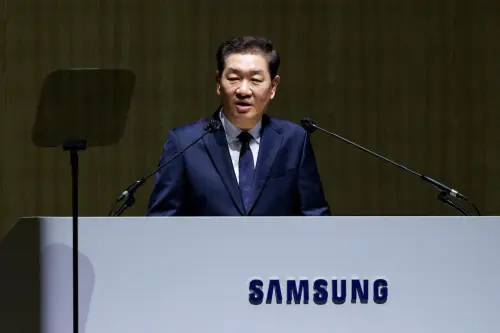Samsung Electronics announced on Wednesday its intention to pursue significant deals to fuel growth, following a challenging period marked by lagging performance in artificial intelligence that positioned the tech giant as one of the worst-performing stocks last year.
Facing criticism from shareholders for its weak financial results and declining share prices, the South Korean company acknowledged falling behind competitors in cutting-edge memory chips and contract chip production, segments that have seen robust demand due to AI initiatives.
During the shareholder meeting, Samsung's co-CEO, responsible for the semiconductor division, acknowledged the company's missteps in the market, stating, "We were late in reading the market trends and we missed out on the early market as a result."
In a bid to revitalize its stock prices, Samsung is contemplating extending its stock-based performance initiative to employees next year, as revealed by co-CEO Han Jong-hee.
Samsung's shares were up by 2.3% in contrast to the KOSPI index's 0.9% rise.
Acknowledging shareholder dissatisfaction, a 65-year-old investor expressed disappointment in Samsung's stock performance, considering shifting investments to U.S. stocks due to the company's poor showings last year.
Samsung, which faced a significant drop in its stock value last year, embarked on a 10 trillion won ($7.2 billion) buyback initiative in November.
Expressing concerns about economic uncertainties, Samsung announced plans to pursue strategic mergers and acquisitions to allay investor worries about growth prospects.
Amid acknowledging a loss of technological advantage, particularly in semiconductor markets, Samsung aims to rejuvenate its fundamental competitiveness by 2025, as outlined by Jun at the shareholder meeting.
Despite challenges in the semiconductor sector, including U.S. restrictions on chip exports to China, Samsung remains committed to navigating these hurdles through its global manufacturing footprint and considering potential U.S. investments.
Samsung remains the top company in South Korea, with a market capitalization of $235 billion, representing a sizable portion of the nation's main bourse valuation, and with nearly 40% of South Korean stock investors holding shares in the conglomerate.
